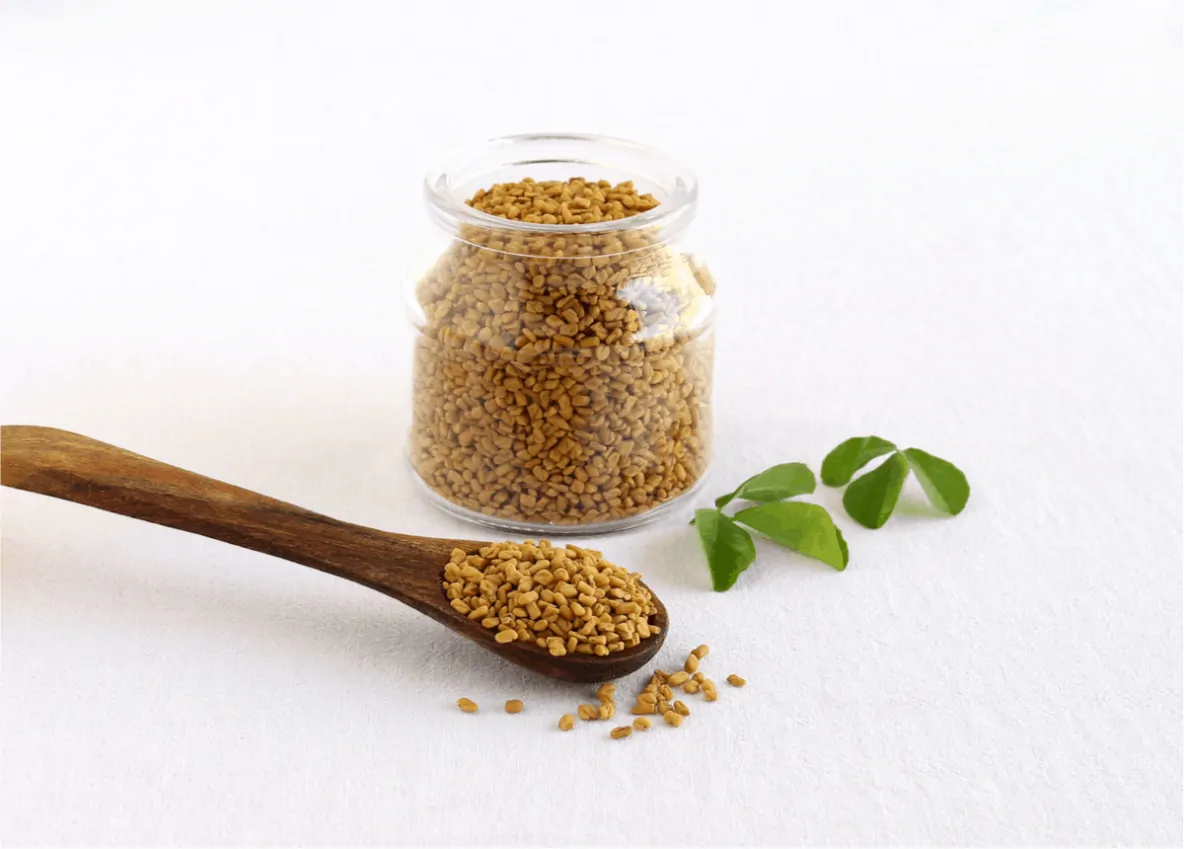Fenugreek, which is often used as an ingredient in Indian cooking, has become popular in the supplement world due to fenugreek’s testosterone boosting benefits.
For years, fenugreek was used in traditional Chinese medicine to treat skin conditions and digestive issues, as well as being used as a tonic to improve metabolic functioning.
8 Potential Benefits of Fenugreek,
- Boosts Libido
- Increases Testosterone
- Improves Strength
- Aids Muscle Growth
- Lowers Depression
- Lifts Mood
- Aids Digestive Health
- Improves Blood Sugar Levels
Fenugreek and Testosterone
One of the main reasons why men often take fenugreek is to boost their testosterone levels. The Journal of Sport and Health Science published an 8-week study measuring the effect of fenugreek supplementation on resistance-trained men.
The study found that men who supplemented with fenugreek showed significant anabolic and androgenic activity compared to men who took placebo supplements.
Fenugreek is supposed to work by blocking estrogen and dihydrotestosterone conversion, which results in increased testosterone levels. Increased testosterone levels are associated with an increase in muscle mass, strength, and power with other positive benefits affecting bodyweight, body composition, libido, energy, and mood.
A University of Sydney study examined six weeks worth of fenugreek supplementation in 60 healthy men to determine the effect of fenugreek on sexual health and libido. The results of the study showed that men who were given fenugreek experienced an improved libido after six weeks.
Aside from being a potential agent for improving men’s sexual health, fenugreek may also help with digestive problems and blood sugar regulation.
Fenugreek and Digestive Health
As fenugreek is made up of 50% fiber, fenugreek may help digestive issues such as constipation, acid reflux, and gastrointestinal inflammation.
The mucilage from fenugreek seeds has been shown to help soothe and reduce inflammation in the gastrointestinal tract and coat the stomach and digestive lining. Furthermore, the fiber and pectin found in fenugreek seeds help to increase stool volume, thereby acting as a natural laxative to relieve constipation.
Fenugreek and Blood Sugar Regulation
Clinical trials found that frequent consumption of fenugreek seeds can improve metabolic symptoms associated with type 1 and type 2 diabetes by reducing blood glucose levels and improved glucose tolerance.
In a study reported in the European Journal of Clinical Nutrition, researchers found that adding 100 grams of fenugreek seed powder to patients with type 1 diabetes significantly reduced blood glucose levels and improved glucose tolerance.
Another trial used a 15-gram dose with people who had type 2 diabetes and found that fenugreek reduced post-meal glucose increases.
Safety and Side Effects
Fenugreek is a certified GRAS (generally recognized as safe) ingredient in the United States, so the risk of toxicity is low. However, like any other supplement, there may be some unpleasant side effects associated with fenugreek consumption, such as diarrhea or indigestion.
Since fenugreek appears to influence glucose control, individuals with diabetes or any other blood sugar disorder should seek guidance from a medical professional before supplementing with fenugreek.
Recommended Dosage
As fenugreek supplements differ between brands and formulations, the recommended dose depends on the specific formula used. As a general rule, it’s best to follow the dose suggested on the label of your fenugreek product.
Many testosterone-based studies use 500 mg of fenugreek extract for male health issues, while some other studies use anywhere from 1,000-2,000 mg of fenugreek.
Effectiveness of Fenugreek
While fenugreek has been used in Indian and Chinese medicine for centuries, fenugreek has become increasingly popular as a supplement for boosting testosterone and improving libido.
Despite this, there are just a handful of studies confirming the positive effects of fenugreek. Although fenugreek does appear to improve libido, more studies are needed to examine the impact of fenugreek on testosterone.

